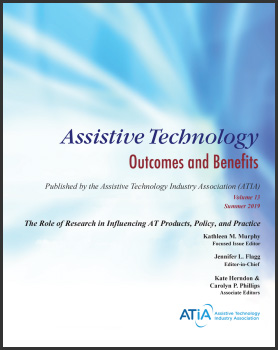Webcast March 18: Living Systematic Reviews
Living systematic reviews (LSRs) are updated on a regular schedule, rather than every few years. Not all systematic reviews need to be updated continually, but for some developing topics, new research emerges regularly. Therefore, reviews on these topics can benefit from ongoing updates. More than 200 researchers now participate in the Living Evidence Network (LEN) supported by Cochrane Australia. This informal network shares information about living systematic reviews, living guidelines, and the broader area of living evidence.
In this free webcast, Dr. James Thomas, a member of the LEN steering group and deputy director of the Evidence for Policy and Practice Information and Co-ordinating Centre
(EPPI-Centre), will guide viewers through the “why” and “how” of LSRs and will share the latest updates on this emerging synthesis strategy. Dr. Thomas is actively involved in developing new technologies and methods to support living systematic reviews, and he will also summarize some of the latest developments in this area.
|
 |
Date: Wednesday, March 18, 2020
Time: 3:00–4:00 p.m. Eastern Time
Register Today!
Center on KTDRR’s Community of Practice on Evidence for Disability and Rehabilitation Research
The Community of Practice on Evidence for Disability and Rehabilitation Research (CoP-EDR) at the Center on Knowledge Translation for Disability and Rehabilitation Research (Center on KTDRR) focuses on the creation, evaluation, and use of evidence and related topics identified by the members. A CoP includes people with similar interests and needs who help one another to support and improve their professional activities. They benefit when they learn from others, but they may benefit even more when they share this knowledge and experience with other members. The CoP is facilitated by Marcel Dijkers, PhD, Professor of Physical Medicine & Rehabilitation at Wayne State University, Detroit, MI.
Learn more about the CoP-EDR.
Teleconferences have been scheduled and will use the Zoom platform:
- February 26, 2020: 3:00–4:00 p.m. Eastern Time
Topic: The Template for Intervention Description and Replication (TIDieR) Checklist and Guide
- April 29, 2020: 3:00–4:00 p.m. Eastern Time
Topic: TBD
- June 24, 2020: 3:00–4:00 p.m. Eastern Time
Topic: Results From Using AGREE II to Evaluate the Quality of Rehabilitation Clinical Practice Guidelines: An Overview Study
- September 23, 2020: 3:00–4:00 p.m. Eastern Time
Tentative Topic: Assessing the Quality and Applicability of Systematic Reviews (AQASR)
- For more information, please contact Joann Starks.
NARRTC’s 2020 Annual Meeting and Conference
April 2–3, 2020
Make plans to participate in the next annual meeting and conference of NARRTC (formerly known as the National
Association of Rehabilitation Research and Training Centers), the national association of the National Institute on Disability, Independent Living, and Rehabilitation (NIDILRR) grantees. The theme of NARRTC’s 42nd annual conference is Telling Our Story: Past, Present, and Future. Learn about cutting-edge research and knowledge translation (KT) activities, and take advantage of networking opportunities with NIDILRR staff as well as new and experienced grantees.
Come network with NIDILRR staff hosting roundtables, hear and watch grantees present papers and posters, and give a round of applause to winners of the 2019 NARRTC awards for Best Paper, Best Poster, Distinguished Service, Special Contribution and Commendations.
Conference registration is open (please register by March 23, 2020):
https://web.cvent.com/event/12a7eb5b-475a-4db0-b30f-1534548bedc1/summary
Reserve a sleeping room for NARRTC (deadline is March 2, 2020):
https://book.passkey.com/event/49990839/owner/49759012/home
(Pre-NARRTC conference policy outreach workshop attendees:
The special rate for NARRTC attendees is not available March 31 at the Ritz.
Other arrangements have been made; see the next article for workshop details.
Dates: Thursday, April 2, and Friday, April 3, 2020
Location: The Ritz-Carlton, Pentagon City
1250 South Hayes Street
Arlington, VA 22202
For the conference agenda, visit the NARRTC website:
https://narrtc.org/annual-meeting/upcoming-meeting.
Outreach to Policymakers Workshop:
Free Pre-NARRTC Conference April 1, 2020
Learn about which strategies are best for sharing research information with state and national policymakers.
The Outreach to Policymakers workshop is co-sponsored by NARRTC, the Center on KTDRR, and the American Institutes
for Research. This free pre-NARRTC conference workshop, for grantees funded by NIDILRR and other disability
researchers, takes place Wednesday
afternoon, April 1, 2020, at a hotel near the NARRTC conference site, the
Embassy Suites by Hilton Crystal City National Airport.
Mark Bayer of Bayer Strategic Consulting will lead an all-new, interactive, in-person workshop in which he presents proven and research-based strategies for networking and sharing research results with representatives on Capitol Hill and in grantees’ home states.
Stacy Ruble of Management Concepts will discuss restrictions on lobbying.
We want you to get the most that you can out of the workshop! To that end, a few weeks before the workshop, registrants will be invited to participate in a pre-workshop webcast to orient participants to the event and to address specific questions about meeting with policymakers. Webcast details will be sent to workshop registrants.
Date: April 1, 2020
Times:
12:00–4:30 p.m. Eastern Time
- 12:00–12:30 p.m. (registration and refreshments)
- 12:30–4:30 p.m. (interactive workshop)
Workshop Hotel: Embassy Suites by Hilton Crystal City National Airport
1300 Richmond Highway (formerly Jefferson Davis Highway)
Arlington, VA 22202
Phone: 703-979-9799
Coming in from out of town? Rooms at the Embassy Suites are $251/night, and a free hotel shuttle is available that stops at the Ritz-Carlton hotel/Pentagon City Metro.
Register Today!
New KT Casebook Edition
Ever wonder how other NIDILRR grantees “do” KT? Need some concrete examples? The seventh edition of the KT Casebook is now available. In this edition, five NIDILRR grantees share snapshots of their KT activities. A common theme throughout the casebook is the importance of meaningful connections with stakeholders. Each entry describes a grantee’s approach to stakeholder engagement unique to the project’s environment.
For instance, the well-established Mayo Clinic Traumatic Brain Injury Model System has relied on its advisory board since 1991 to inform research questions and project activities. Newer projects that focus on opioid use disorders—such as Improving Assessment of Opioid Use Disorder in People with Disabilities Related to Chronic Musculoskeletal Pain, and INROADS: (Intersecting Research on Opioid Misuse, Addiction, and Disability)—use stakeholders in multiple ways to guide their research and dissemination activities. The project Evaluating the Impact of a School-to-Work Collaborative on the Employment Outcomes of Transition-Aged Youth at the Indiana Institute on Disability and Community made strides in improving interagency collaboration to improve the employment outcomes for students with disabilities. The project engaged stakeholders throughout implementation.
In its casebook entry, the Center on KTDRR describes the creation of its online policy portal, which houses a directory of vetted disability organizations that engage in outreach to policymakers. Developed in consultation with the Association of University Centers on Disabilities, the portal is designed to foster awareness among researchers of potential partners in research-to-policy initiatives. The Center on KTDRR prioritizes organizations listed in the portal in its efforts to build relationships between policy-oriented organizations and NIDILRR grantees, especially those who have authored systematic reviews in areas of interest to these high-profile disability advocates.
From these casebook entries, grantees can learn from the experiences of others to improve their own stakeholder
engagement and other KT initiatives. If you are a NIDILRR grantee and are interested in participating in the
eighth edition of the KT Casebook, we are currently accepting applications.
Authors of casebook entries work with the Center on KTDRR staff to highlight KT aspects of their
project work, and also receive support from the Center on KTDRR in promoting the visibility of their individually published entries.
2019 KT Conference Archive Now Available

Check out the word cloud from actual evaluations from the 2019 annual KT conference, which featured the theme “Innovative KT Strategies That Work”:
Missed the 2019 annual KT conference? Archived presentations from the 2019 Online KT Conference are now available:
https://ktdrr.org/conference2019/expo/conf_materials.html
Archived resources include captioned YouTube videos, edited transcripts, and downloadable copies of presentation files.
Save the dates for next year’s conference: Oct. 26, 28, and 30, 2020.
Our preliminary theme: “Social Media Strategies for Knowledge Translation.”
Expert Review Panel
On January 30, 2020, the Center on KTDRR’s Expert Review Panel held its inaugural meeting. Panelists from the United States and abroad with backgrounds in KT, lived experience with a disability, communications, disability policy, and rigorous research designs met online to discuss the center’s 2020 plans. The panelists serve as thought partners to center staff and help ensure that our products and resources are responsive, accessible, and informed by research. Thank you to all the experts who have agreed to assist the Center on KTDRR.
Special Issue of the Assistive Technology
Outcomes and Benefits Journal

Kathleen Murphy, Project Director of the Center on KTDRR, was a guest editor for Volume 13 of the journal Assistive Technology Outcomes and Benefits, “The Role of Research in Influencing Assistive Technology Products, Policy, and Practice.”
The issue addresses the ways that research, either internally within an organization or externally through
successful private and/or public partnerships, has resulted in new assistive technology innovations,
practices, and policies that help people with disabilities achieve their goals. Articles highlight research
findings that can inform product development, practice, and/or policy, helping to shape emerging and
future technologies, strategies, and programs. Authors were invited to draw conclusions about how research
has been or can be used by other stakeholders to effect positive change for people who use assistive technology.
Learn more about the contents through Murphy’s
Introduction to Assistive Technology Outcomes and Benefits
Volume 13, or use the links below to access individual articles.
Download Volume 13 (PDF)
Download Volume 13 (DOCX)
|






